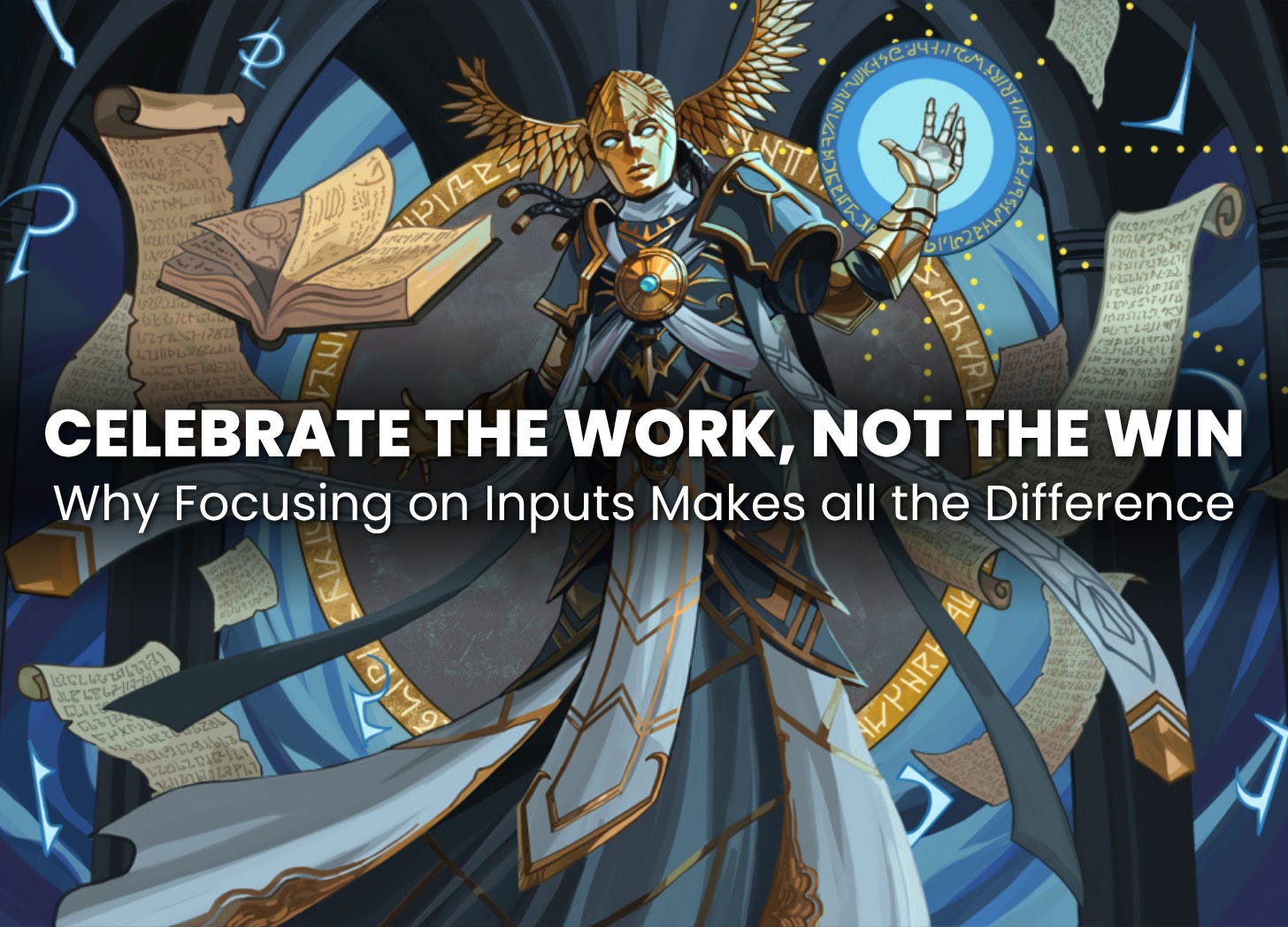The moment I opened Tony's email, I could tell that he'd put everything he had into this marketing plan. After weeks of meticulous work, the document reflected exactly what I had hoped to see: thorough analysis, clear strategy, and careful attention to every detail.
“Fantastic work. This is great,” I told him.
“But… we haven't succeeded yet.”
“So what?” I replied. “You did great work.”
To my surprise, he paused; began blinking back tears. "Sorry," he said. "It's just… I've never heard that before. I worked at Amazon for years, and they made it clear: we don't celebrate inputs, only success. I think there's some trauma there."
I was stunned. He had done the hard work, was launching a global initiative, and led a team—yet still felt unseen. How could a company celebrate only success, when so much of building something great depends on starting strong, working hard, and learning through failure?
For Tony and me, what was supposed to be a routine check-in instead led us to something much deeper. I realized we've all been sold the same lie: only results matter. But I believe the opposite. The work you do each day, the thoughtful decision made in the moment, the lesson hiding in a mistake—that's what's worth celebrating.
This distinction, between what we do and what we achieve, is crucial. Let's define our terms:
Inputs: your work, focus, and decisions.
Outputs: the measurable outcomes or results.
Outputs are what we're taught to celebrate—the promotion, the weight loss, the successful project, the tournament win—but they're often shaped by things outside your control like market conditions, other people's decisions or random chance.
Inputs, on the other hand, are fully in your hands. You control whether you show up, how hard you work, and how willing you are to learn.
I celebrate when I write for twenty minutes—regardless of what I write
I celebrate when I make the best decision I can with the information I have—whether or not my plan works.
I celebrate showing up compassionately for hard conversations—even if the other person doesn’t respond.
When you shift your focus to celebrating inputs instead of outputs, three powerful things happen:
You get more positive feedback loops. Instead of waiting months to celebrate finishing a book, you celebrate every day you sit down to write. Instead of waiting to win the tournament, you celebrate every correct decision you make. The more often you feel that sense of progress, the more likely you are to keep going.
You develop antifragility. By valuing process over results, you transform setbacks into strengths. A book rejection still builds your writing habit. A failed launch teaches you better market research. Each experience becomes a foundation for future success.
You compound progress faster. Daily input celebrations create momentum. Each small win reinforces the behavior, making it easier to return to the work tomorrow. Over time, those inputs stack up, building small actions into major achievements.
This mindset applies to everything.
Want to get fit? Start with 10 minutes of movement daily.
Want to design a game? Block out and perform twenty minutes of design work daily.
Want to start a business? Talk to one potential customer each day.
Want to build great relationships? Send one thank you note or kind message each day.
These small habits are inputs. Celebrate them.
That said, habits are just one type of input worth celebrating. The real power comes when you expand this thinking to all your inputs—including the lessons you learn from mistakes.
One of my favorite stories comes from early development of SolForge. My team and I were brainstorming ideas for our second set of cards. We were in the zone, with ideas flying and creative energy buzzing. Hours went by. Eventually, someone jotted things down while the rest of us pushed through to a strong direction.
A few days later, we tried to revisit the mechanics from that session, but no one could remember them clearly. I remembered someone had been taking notes, so I found the notepad and started reading it aloud:
“Hunan Beef. Kung Pao Chicken. Fried Rice…”
It wasn't a brainstorm record… it was a lunch order.
Consequently, we had to rebuild the entire session from scratch.
That mistake cost us hours of work. But it became one of our most-told stories—and one of our most effective lessons. Today, every time we start a meeting, someone jokingly says, “Hunan Beef?” to make sure someone is taking notes. The Hunan Beef Rule is now a part of our company culture.
We didn't make the right input decision that day. But we did extract a lesson that's lasted over a decade. And that, too, is worth celebrating.
I've made more mistakes than I can count and I'll make plenty more, but I review them, reflect on them, and pull out the insights I can carry forward. That's how failure becomes fuel.
So yes, I celebrate habits. I celebrate decisions. I celebrate lessons.
Because in the long run, the more we focus on the inputs we control, the more likely the outcomes will take care of themselves.






I’ve had to learn (and relearn) that a quiet hour of messy sentences is no less worthy than a published piece. But I’ll admit, your piece helped me believe that a little more.... thank you!
I’ll echo Rebecca that this is something I’ve been thinking on for a while and this article really puts it in excellent terms. There is something inherently good in the process, not just the end result. This is true in everything we do as human beings.